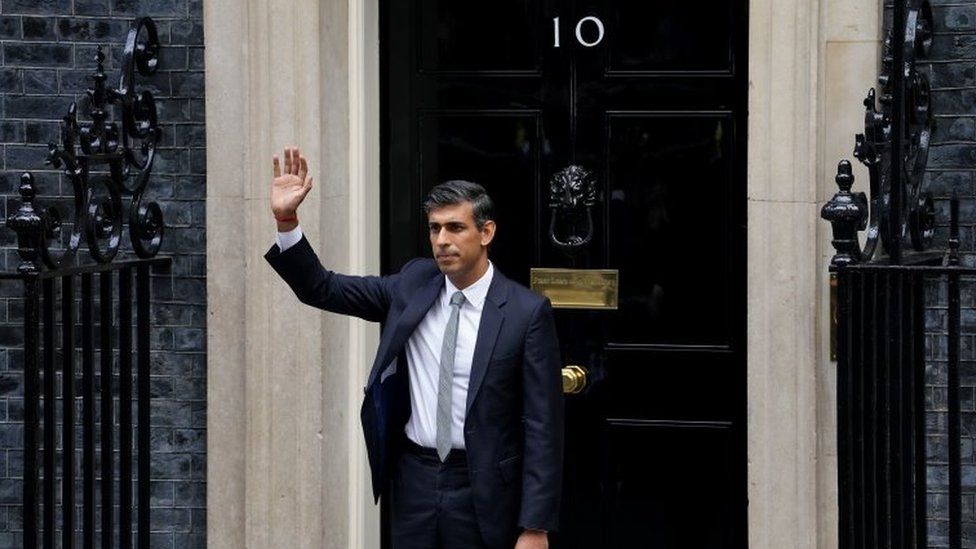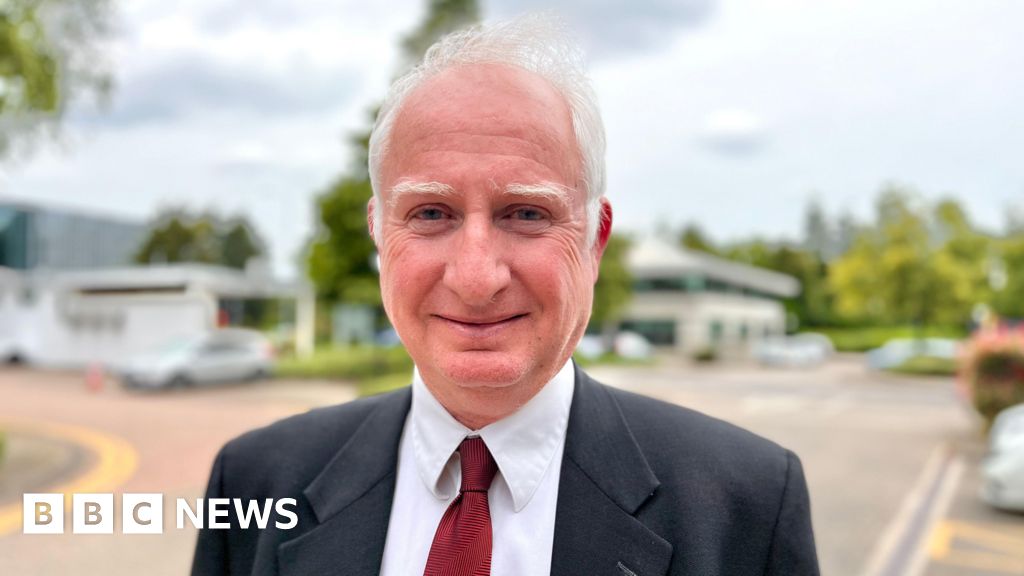ARTICLE AD BOX
 Image source, PA Media
Image source, PA Media
By Joshua Nevett
BBC Politics
That was Rishi Sunak's stark message to his party after he was declared the new Conservative Party leader.
It was a plea to come together after a period of intense economic and political turbulence brought down the government of his predecessor, Liz Truss.
Tory members were poised to choose their next leader, as they did only weeks ago when they elected Ms Truss instead of Mr Sunak. But this time, members were denied a vote, as Mr Sunak was elected unopposed as the only nominee with enough support among Tory MPs.
For some members, especially those who backed Ms Truss in the last Tory leadership contest, Mr Sunak's appeal for unity rang hollow. Despite his conciliatory tone, those members feel ignored, or worse snubbed, by Tory MPs who they feel have overturned their will and sparked a fire of discontent at the party's grassroots.
"They have made the grassroots feel used and not needed," Tamara Wood, chairwoman of Telford Conservatives in western England, told the BBC.
"The Conservative Party is a big machine and they have excluded a very big part of us," she added.
She is one of an estimated 160,000 Conservative members who would have had a say, had the latest Tory leadership contest gone that far.
The fact that it didn't has angered some members so much, they felt compelled to resign their party membership.
One of them was Tim Carpenter-Balmer, who said "MPs have effectively said the membership are contemptible and if I hung around I would be agreeing with them".
He said when he and other members voted for Ms Truss during the summer, Tory MPs who backed Mr Sunak "were determined that she was going to fail".
Image source, Tim Carpenter-Balmer
Image caption,Tim Carpenter-Balmer has resigned his Conservative Party membership
Looking ahead to the next general election, the 46-year-old from Warwickshire isn't sure which party he'll vote for. He may turn away from the party, like Sean Matthews has.
A lifelong Conservative voter, Mr Matthews ripped up his membership after Mr Sunak became party leader, calling his election "a coronation."
By selecting Mr Sunak only six weeks after he lost to Ms Truss, Tory MPs had gone against "the express wishes of the grassroots", Mr Matthews said.
"It was the straw that broke the camel's back," said Mr Matthews, a retried police officer who had been a member for seven years. He had been the field operations officer at Louth and Horncastle Conservative Association in Lincolnshire, until Monday's result.
Feeling disenfranchised, he defected to Reform UK, formerly known as the Brexit Party. Its leader, Richard Tice, told the BBC "thousands of former Tory members have joined in the last week".
Image source, Sean Matthews
Image caption,Tory member Sean Matthews has joined another party
While Mr Sunak's election may have driven members away from the Tories, it has drawn others closer.
Ed Costelloe, the chairman of Grassroots Conservatives, acknowledged there was a "great deal of anger", but only "among a small minority of members".
A party member since he was 18, the 76-year-old said "history has shown that Liz Truss got it completely wrong". On the campaign trail in the summer, Mr Sunak dismissed Ms Truss's tax-cutting economic agenda as "fairytale economics".
"Events have proved that the MPs were right and the members of the party were wrong," Mr Costelloe said.
As for the outcome of this leadership contest, "the party has followed the process absolutely properly", said Daphne Bagshawe, chairwoman of Wealden Conservatives.
"We ended up with one candidate, that meant an election wasn't necessary."
While a party election wasn't necessary, a general election - some argue - is.
Ben Harris-Quinney, director of Conservative Grassroots, said "in a paragon of democracy like ours, it is absurd to revert to a system of prime ministers being decided behind closed doors".
He said the public should be "gaining control" over who governs them, not losing it, after the UK voted to leave the European Union in 2016.
"The only way for Rishi Sunak to gain a mandate now is to hold a general election, and for the health of our democracy that should happen quickly," Mr Harris-Quinney said.
As Mr Sunak has ruled out calling a general election, critics may cast doubt on that mandate for some time. Boris Johnson - some members say - was party leader when the Conservatives won its majority in the 2019 election, not Mr Sunak.
Mr Johnson's popularity among the grassroots will cast a long shadow over Mr Sunak's premiership.
Anti-Sunak sentiment has been running high within the party since he resigned as chancellor in July, giving momentum to a cabinet mutiny that forced Mr Johnson from office. The perception that Mr Sunak betrayed his former boss and detonated the bomb underneath his premiership will be difficult to shake off.
But as the party seeks to climb out of the ditch into which its poll ratings has plummeted, some members are more pragmatic.
"We should now rally and unite behind Rishi, putting the petty politics aside for the sake of not only the reputation and longevity of the party, but for the country at such a difficult time," said Richard Lewington, chairman of Conservatives Abroad Madrid.

 2 years ago
31
2 years ago
31








 English (US)
English (US)